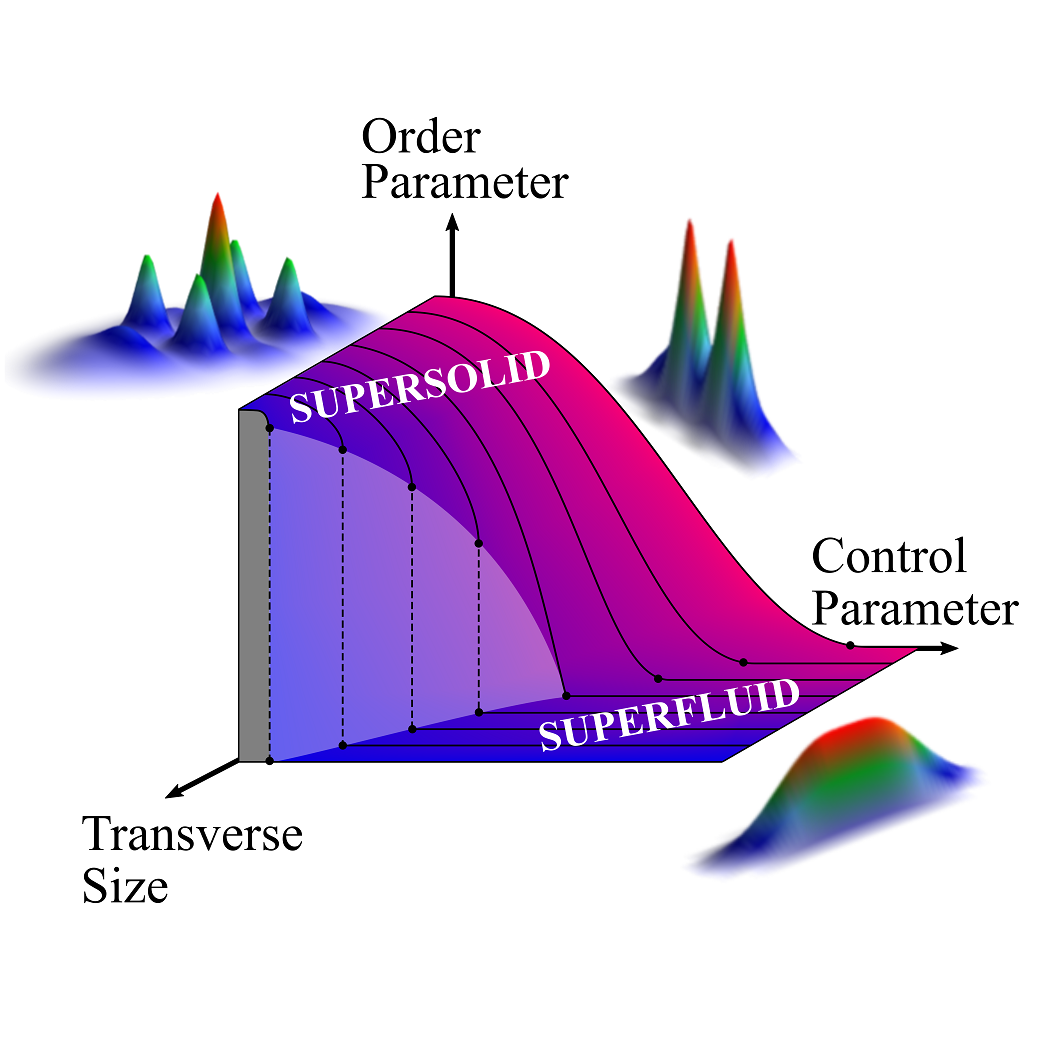 |
The supersolid is a long-sought quantum phase of matter combining properties of superfluids and crystals, finally discovered in quantum gases of magnetic atoms. The experiments usually cross a quantum phase transition from a homogeneous superfluid to the density-modulated supersolid. But very little is known about this novel type of phase transition. Here, we find experimentally and theoretically that the superfluid-to-supersolid quantum phase transition resembles ordinary crystallization transitions but with important novelties due to the peculiar ways in which supersolids are different from superfluids and solids. We see evidence of two types of transitions, continuous and discontinuous, which can be linked to the second- and first-order phase transitions expected for 1D and 2D systems, respectively. Interestingly, we find that the dimensionality of a supersolid depends not only on the underlying lattice structure but also on the structure of the density background that provides phase coherence among lattice sites. Our analysis provides a general framework based on Landau theory—a general theory of phase transitions—which allows us to reconcile previous results in the field. The continuous transitions we find provide access to excitation-free supersolids, which can be employed to study fundamental phenomena such as superfluidity and entanglement in this new state of matter.
G. Biagioni, et al. |


We aim to widen the range of quantum simulations with cold atoms, by investigating phenomena arising from the long-ranged dipolar interaction in reduced dimensionalities. We are operating a new experimental setup based on quantum gases of the highly magnetic Dysprosium atoms. This is a joint project between LENS and CNR-INO, Sezione di Pisa.
